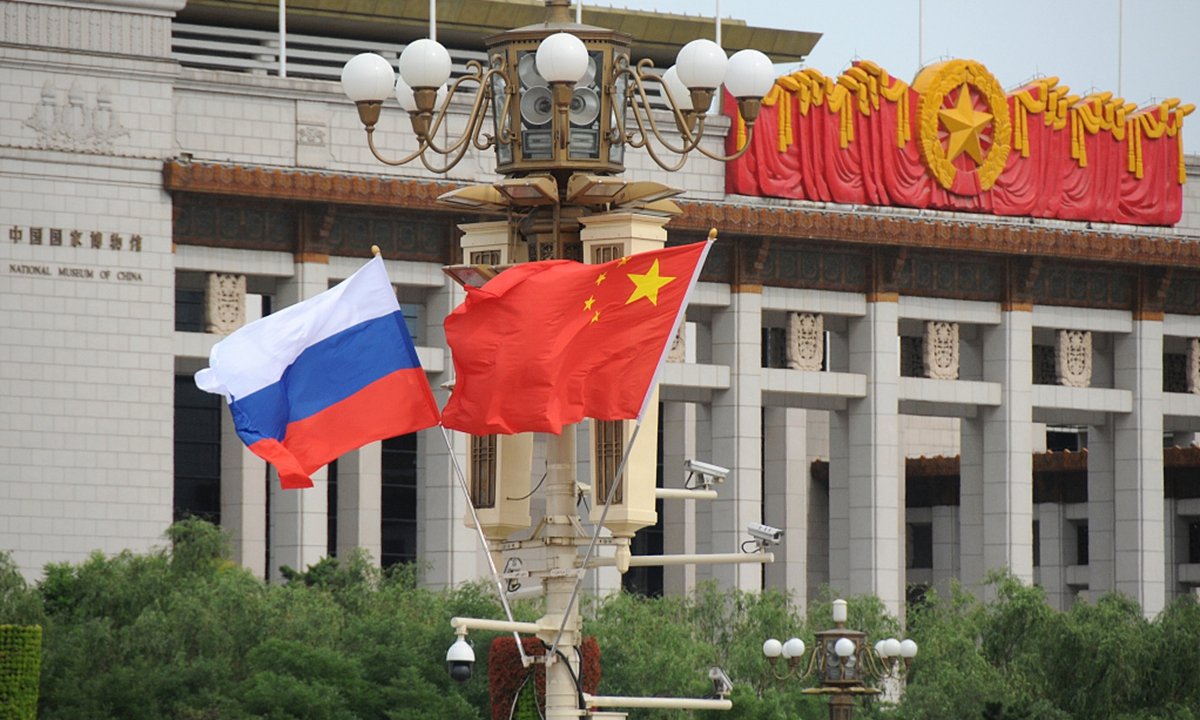China is gearing up to host the much-anticipated third Belt and Road Forum for International Cooperation (BRF) in Beijing, scheduled from Tuesday to Wednesday. The event is slated to witness the participation of Russian President Vladimir Putin, drawing substantial attention from analysts who view this as a pivotal moment in the ongoing development of bilateral relations between China and Russia. Moreover, it stands as a remarkable testament to Russia’s unwavering support for the Belt and Road Initiative (BRI), underlining its commitment to fostering pragmatic collaborations.
Expectations among analysts are high as they foresee an in-depth exchange between China and Russia, aimed at unlocking the full potential of enhancing economic, trade, and investment cooperation. There is also a keen focus on bolstering bilateral cooperative institutions and mechanisms, while simultaneously reinforcing and expanding energy and connectivity collaborations within the framework of the BRF.
Prior to Putin’s forthcoming visit to Beijing, Russian Foreign Minister Sergei Lavrov arrived in the Chinese capital on Monday morning for preliminary discussions. During this visit, China’s top diplomat Wang Yi, a member of the Political Bureau of the Communist Party of China (CPC) Central Committee and Minister of Foreign Affairs, held a meeting with Lavrov.
In their meeting, Wang emphasized that China aims to leverage the forum as a platform to build a broader international consensus and propel the BRI into a new era of high-quality development. Wang also expressed appreciation for President Putin’s unwavering support for the joint construction of the BRI, warmly welcoming Russia’s continued active engagement in facilitating common development and prosperity.
Lavrov, acknowledging the positive momentum of the bilateral relationship between Russia and China, affirmed Russia’s commitment to maintaining close strategic communication with China. He further expressed a strong desire to deepen practical cooperation across various domains.
The BRI has emerged as a vital platform for fostering international cooperation, with active participation from all involved parties. This collaborative effort has also contributed significantly to fostering mutually beneficial cooperation within the Eurasian continent. Lavrov emphasized President Putin’s anticipation of a meeting with President Xi Jinping and expressed confidence in the success of the upcoming summit.
Cui Heng, a scholar from the China National Institute for SCO International Exchange and Judicial Cooperation, highlighted the significance of Putin’s attendance at the BRF, emphasizing its pivotal role in advancing the China-Russia comprehensive strategic partnership of coordination for a new era. Cui remarked on Russia’s growing engagement with the BRI, underscoring its profound impact on facilitating pragmatic collaboration and bolstering the Eurasian economy.
According to the latest statistics released by the General Administration of Customs of China, the trade volume between China and Russia from January to September 2023 exceeded $176 billion, reflecting a notable year-on-year increase of 29.5 percent. This substantial figure demonstrates the steady growth in trade, with China’s exports to Russia surging by 56.9 percent and its imports from Russia rising by 12.7 percent.
In a report by Russia’s Sputnik news agency, Kremlin spokesman Dmitry Peskov revealed that Putin and President Xi are scheduled to engage in a private conversation during the BRF. This discussion is anticipated to delve into critical global affairs, considering the increasingly significant roles played by both Russia and China in international geopolitics. Peskov underscored the numerous integration processes and associations uniting the two countries, which have garnered significant attention from the global community.
Cui anticipates that during their discussions, Putin will reaffirm the fruitful outcomes arising from the agreements between the two leaders during Xi’s visit to Russia in March, particularly emphasizing progress in the realm of interconnectivity.
In an interview with Rossiya 1 Television, as reported by TASS, Putin emphasized that Moscow and Beijing are not seeking to establish a military or political alliance, diverging from the conventional practices adopted by Western countries. These remarks from Putin coincided with the recent recommendations from a bipartisan panel appointed by the US Congress, suggesting that the US should gear up for potential conflicts with Russia and China by bolstering its conventional forces, fortifying alliances, and modernizing its nuclear weapons program.
Reuters reported that the panel members expressed concerns about the possible coordination between China and Russia, which could potentially escalate the global power dynamics into a two-war construct. Li Haidong, a professor at the China Foreign Affairs University, denounced these suggestions, highlighting the US as a primary threat to global strategic stability, while emphasizing the roles played by China and Russia as pillars of global stability and major power relations.
Wang Yiwei, director of the Institute of International Affairs at the Renmin University of China, emphasized the transcending nature of China-Russia strategic coordination, transcending the confines of a bilateral partnership. He underscored its growing significance in safeguarding international order, fairness, justice, and stability, emphasizing their shared responsibilities within multilateral and regional frameworks such as BRICS and the Shanghai Cooperation Organization.
Wang noted that the US, by sowing discord and nurturing conflicts, seeks to manipulate its allies in the pursuit of its own interests and hegemony. However, this Cold War mentality is considered outdated, with the current global dynamics calling for a more collaborative and inclusive approach to international relations.
Read More:
